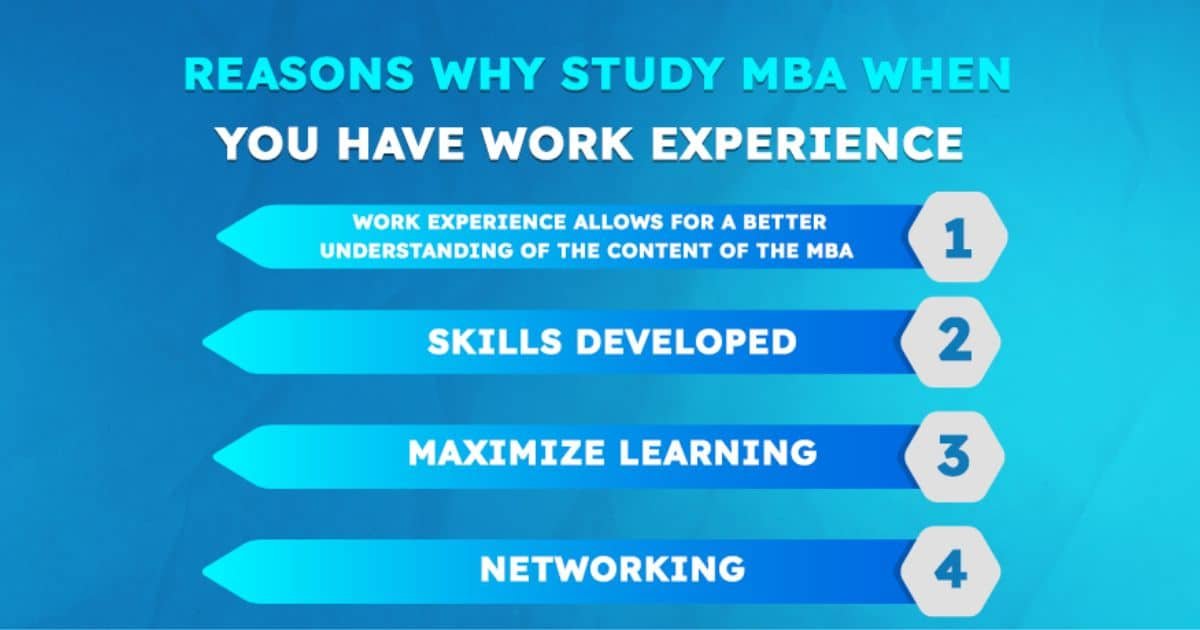Especially for seasoned workers, among the most sought-after degrees available globally is an MBA ( Master of Business Administration). An MBA will greatly affect your professional development whether your goal is to progress your career or already have a managerial job. Still, why should a seasoned professional give an MBA some thought? For people with work experience, this article will cover the long-term value, reasoning, and advantages of earning an MBA.
What is an MBA?
Graduate-level degrees stressing business, management, and leadership development make up an MBA. It addresses strategy, entrepreneurship, human resources, marketing, and finance among other things. An MBA aims to provide people the skills and tools required to assume leadership positions and make strategic decisions spanning several sectors.
Types of MBA programs
Many MBA programs fit individuals in many periods of their employment:
MNA full-time Those committed to full-time study will find this two-year program perfect.
Designed for working individuals, a part-time MBA lets you study right out of the office.
Emphasizing advanced leadership and business strategy under Executive MBA (EMVA), this program targets top managers and executives.
Online classes give those who need flexibility the chance to learn from anywhere.
Why Novices Should Get an MBA?
Prospects for Professional Development
Professionals with experience often find their career development leveling out at a specific point. Although you could have relevant experience, you could need more credentials to land a higher-level leadership job. By empowering you with the managerial, financial, and strategic skills required to progress into positions including Director, Vice President, or CEO, an MBA closes this gap.
Quickening Messages
Since it will help them to fast forward their careers, most seasoned employees get an MBA. Having an MBA not only distinguishes you from the others but also shows that you are dedicated to education and development. Companies like workers who continually improving their expertise; so, an MBA helps you in this regard.
Improving Leader and Management Competencies
Although an MBA provides a formal leadership and management education, experience in the workplace gives unique insights. Curriculum expose professionals to business theories, case studies, and practical scenarios supporting critical thinking and better decision-making.
Strategic Views
Even although seasoned professionals may concentrate on their particular jobs, an MBA helps you to observe from a more strategic, all-encompassing perspective. This include knowledge of industry trends, financial data analysis, and decisions influencing the whole company. Anyone hoping for high management positions has to approach their ideas somewhat strategically.
Prominent Team Leadership
An MBA helps you additionally define your leadership style. Team building, employee motivation, and handling of difficult personal dynamics will be taught to you This helps seasoned professionals to get employment where driving performance and personnel management are vitally vital.
Development of Professional Network
The networking opportunities of an MBA are one of its less valued advantages. Colleagues, academics, and business professionals you meet during your MBA could provide opportunities for you going forward. Many seasoned workers earn an MBA to network and run across like-minded people.
Alumni Nets
Going forward, you will find great advantage in outstanding alumni networks developed in top MBA programs. These networks give access to expertise of many disciplines, mentoring, and employment choices. Joining an alumni network allows seasoned professionals to leverage their contacts.
Industries relations
Apart from alumni, MBA schools sometimes give chances to meet business executives and recruiters. These contacts help seasoned experts to create teams and expand their job choices.
Learning Specialism and New Skills
An MBA allows you to pick up fresh abilities not likely obtained from past jobs. An MBA lets you focus in fields in demand right now whether in digital marketing, data analytics, or advanced finance.
Particular courses
Many MBA programs offer courses in entrepreneurship, supply chains management, or healthcare management—specialties in areas abound. You could already know one area as an experienced professional, but these expert courses will provide sharp analysis and useful skills in another.
Be Current
The corporate world is always changing; thus, it is imperative to keep informed on the most recent developments in technologies and trends. Often conscious of the need of lifelong learning, an MBA enables experienced professionals to remain relevant in the competitive environment of today.
Improved Earning Potential
The possibility of a higher income is one of the main motivators for those aspiring to an MBA. Studies repeatedly demonstrate, especially for seasoned workers, MBA grads make rather more than those without the degree.
Return on Investment- ROI
While an MBA degree might be expensive, generally the long-term financial returns exceed the initial outlay. Although individuals in top jobs usually see far bigger returns, many MBA grads get pay raises between thirty and fifty percent.
Salary Bargains
Apart from raising your earning capacity, an MBA helps you negotiate pay. Companies understand the importance of an MBA and often are prepared to pay more to draw in and keep workers with MBA qualifications.
Activities of Entrepreneurial Nature
An MBA provides the ideal forum for seasoned professionals driven by entrepreneurship looking for the knowledge and tools needed to launch and run a profitable company. Many MBA programs concentrate on entrepreneurship and provide courses in business planning, finance, and marketing geared to students hoping to start their own businesses.
Building a Business Plan
From market research to financial projections, an MBA provides the foundation of developing a strong business plan. Even if seasoned experts have outstanding ideas, they could lack the official expertise needed to make them profitable companies. An MBA gives the tools and direction required to really implement such ideas.
Investors’ Availability
Many times, MBA programs give access to investors and venture capitalists seeking out creative businesses. This will allow seasoned experts present their ideas and get comments or funding.
Acquiring a Worldwide View
Professionals in the business sector have to grasp cultural diversity and overseas markets if they are to grow in line with the globalized society. Particularly with an international concentration, an MBA helps seasoned executives view business worldwide.
International Awareness
Numerous MBA courses involve overseas study tours, which expose numerous markets and cultures. Being a seasoned professional, this exposure can be quite helpful particularly if your line of work involves foreign companies or multinational teams.
Cross-cultural management
MBA courses also teach cross-cultural management, which guides professionals in handling clients from many backgrounds and teams. Professionals having experience dealing with foreign clients or multinational companies have to be very adept in this respect.
Personal Growth and Individual Advancement
Besides the advantages for the career, an MBA helps one develop personally. The demanding course asks you to grow in critical thinking, time management, and problem-solving ability.
Engineering Confidence
Returning to the classroom and excelling in demanding courses could be quite motivating for seasoned employees. It demonstrates that regardless of your age or job level you can still learn, develop, and blossom.
Office-Life Balance
Although balancing job, life, and an MBA degree can be difficult, professionals discover that their time is best employed this way. This ability will enable you to more effectively manage several tasks in the job.
Conclusion
From leadership development to work progress and from higher earning potential to entrepreneurial success, an MBA provides a wealth of advantages for seasoned workers. It offers a forum for developing new abilities, growing your network, and fostering a worldwide company viewpoint. Ultimately, an MBA is an investment in your future; it offers the information and tools required to manage the tough and always changing corporate world instead of only a degree.
Right now is the moment for a seasoned professional aiming for an MBA to grow forward. Getting this degree can greatly impact your job and open new avenues.

